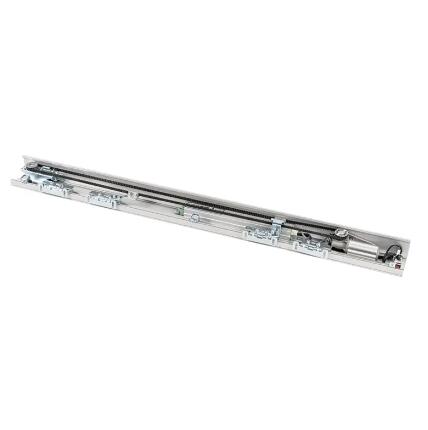Exploring the Advantages of Sliding Function Doors in Modern Interiors
2024-09-04
Sliding function doors have become increasingly popular in modern interior design, offering a blend of style, functionality, and space-saving benefits. These doors are not just practical but also add a touch of elegance to any space. In this blog, we'll delve into the various advantages of sliding function doors and why they are an excellent choice for contemporary homes and offices.
1. Space-Saving Design
One of the most significant benefits of sliding function doors is their space-saving design. Unlike traditional hinged doors that require a wide arc to open, sliding doors glide along a track, requiring minimal space to operate. This makes them an ideal solution for small rooms, apartments, or areas where space is at a premium. Sliding doors maximize the available floor space, allowing for more flexible furniture arrangements and a less cluttered look.
2. Versatility in Design and Material
Sliding function doors are available in a wide variety of materials, styles, and finishes, making them highly versatile. Whether you prefer a sleek, modern look with glass panels or a warm, rustic feel with wooden doors, there is a sliding door to match your interior design aesthetic. Additionally, sliding doors can be customized to fit different sizes and configurations, making them suitable for various applications, from bedroom closets to large conference rooms.
3. Improved Aesthetics and Natural Light
Sliding function doors, especially those made of glass, can significantly enhance the aesthetics of a space. Glass sliding doors allow natural light to flow between rooms, creating a bright, open atmosphere that can make smaller spaces feel larger and more inviting. The transparency of glass doors also helps maintain visual continuity between different areas, contributing to a cohesive and harmonious design.
4. Easy Accessibility and Smooth Operation
Sliding function doors are designed for ease of use. High-quality sliding doors are equipped with smooth gliding mechanisms, allowing them to open and close effortlessly with minimal force. This makes them accessible to people of all ages and abilities, including children and the elderly. Additionally, sliding doors can be installed with soft-close features, preventing slamming and reducing noise, which is particularly beneficial in shared or quiet spaces.
5. Enhanced Privacy and Noise Control
While sliding function doors can create an open and airy feel, they are also effective in providing privacy and controlling noise. Sliding doors with opaque or frosted glass can separate spaces while maintaining privacy, making them ideal for bathrooms, bedrooms, or offices. Additionally, when closed, sliding doors can help reduce noise transmission between rooms, contributing to a quieter and more peaceful environment.
6. Energy Efficiency
Sliding function doors can also contribute to the energy efficiency of a building. High-quality sliding doors are often designed with weather-resistant seals and double-glazed glass, providing excellent insulation. This helps to maintain a consistent indoor temperature, reducing the need for heating or cooling and lowering energy costs. In addition, the large glass panels of sliding doors can allow for passive solar heating, further enhancing energy efficiency.
7. Indoor-Outdoor Connection
One of the most popular applications of sliding function doors is as a connector between indoor and outdoor spaces. Large sliding glass doors can open up an entire wall, seamlessly blending the interior with a patio, garden, or balcony. This creates an expanded living area and allows for easy access to outdoor spaces, making sliding doors a perfect choice for homes that emphasize indoor-outdoor living.
Conclusion
Sliding function doors offer a multitude of benefits, from saving space to enhancing aesthetics and improving energy efficiency. Their versatility in design and material options makes them suitable for various applications, while their smooth operation and accessibility add to their appeal.



